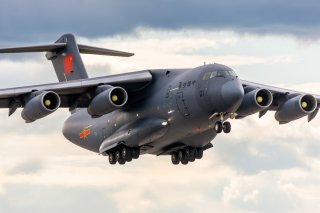Increased Chinese Support for Russia Will Imperil the World
The Russian invasion of Ukraine has been devastating. But the effects of a prolonged war will be far direr.
This week, Chinese president Xi Jinping met with Russian president Vladimir Putin to discuss the Russian invasion of Ukraine and Sino-Russo relations. During their meeting, Xi stated that Russia’s development had “significantly improved” while Putin claimed that China “made a colossal leap forward.”
The visit came just days after the International Criminal Court (ICC) issued an arrest warrant for Putin for committing war crimes in Ukraine. China is not a state party of the Rome Statute, a treaty recognizing the ICC. Thus, Xi’s visit suggests that China feels no need to hold the Russians accountable for their ongoing invasion of Ukraine. Many members of the international community are also skeptical of China’s neutrality in the war, given Xi’s close relationship with Putin.
But there are additional concerns about the Sino-Russo relationship. As the war in Ukraine enters its second year, reports have shown that the Russians are running low on ammunition, weapons, and military hardware. This was apparent during Russia’s recent missile strike on Ukraine, where the Russian military reportedly used older and outdated equipment. International sanctions have also limited Russia’s ability to operate in the global market. As a result, Russia has resorted to buying aid from Iran and North Korea. To date, Russia has purchased missiles and drones from the Iranians while North Korea has provided artillery shells and rockets to Russia.
Now, the international community believes that China “is considering sending lethal aid to Russia,” something that may have already occurred. According to a recent POLITICO report, China has sent assault rifles, drone shipments, and body armor to Russia. This would pose a direct threat to the world.
Why is this the case?
First, purchasing materiel from these countries will allow Russia to replenish its stockpiles, thereby allowing Moscow to continue its war in Ukraine. To date, the Russian Federation has shown no signs of ending the war. Instead, Russia has sought methods to continue its attempts to take over Ukraine. Prolonging the war would only result in greater hardships in Ukraine as well as across the globe. One quarter of Ukraine’s total population is displaced, thousands of Ukrainians have been killed, and numerous Ukrainian cities have been destroyed. Ukraine has already endured enough hardships. Thus, the international community should continue to pressure Russia to force an end to its war.
Second, a prolonged Russian war in Ukraine will increase global gas and food prices. The availability of crude oil has diminished, and there has become a “stark imbalance between supply and demand.” Moreover, Russia and Ukraine are major food producers for several countries in Africa, the Middle East, and Asia. Ukraine’s agricultural sector and environment have been severely damaged by the war, and this has made it more challenging to export food from Ukraine to different parts of the world. As a result, global food prices have increased, and the inability to export food easily to other regions has resulted in a global food crisis. Should Russia’s war continue, the lack of food exports could escalate to a global famine in these regions.
Finally, a prolonged Russian war could result in a global recession. According to the World Bank, the Russian invasion of Ukraine led to a rise in “prices of commodities … and [it] contribut[ed] further to global supply disruptions.” Numerous countries are still recovering from the socioeconomic effects of the coronavirus pandemic. If a recession were to occur, this would undermine recovery efforts in many parts of the world, leading to “higher levels of unemployment, contracted measures of income, and stagnation in economic growth.”
In other words, the effects of the Russian invasion of Ukraine span far outside the realms of Eastern Europe, and the impacts of the war could escalate. As a result, the international community should do everything it can to stop the war. The international community must continue to implement stiff penalties on Russia, limiting Moscow’s ability to interact with the world on an international scale and hindering its ability to finance its war.
The West has also warned China not to give Russia lethal aid, stating that economic sanctions could be imposed on China, the world’s largest exporter. If China supplies lethal aid to Russia, then the international community could limit trade with China, with negative impacts for the Chinese economy. This could make China think twice about becoming additionally involved in Russia’s war.
Overall, the Russian invasion of Ukraine has been devastating. But the effects of a prolonged war will be far direr. It is time for the international community to put an end to its war.
Mark Temnycky is an accredited freelance journalist covering Eastern Europe and a nonresident fellow at the Atlantic Council’s Eurasia Center. He can be found on Twitter @MTemnycky.
Image: Fasttailwind / Shutterstock.com.

